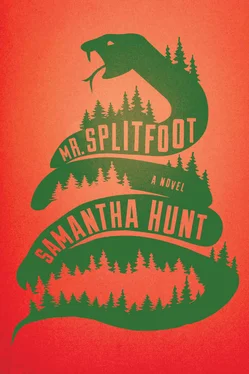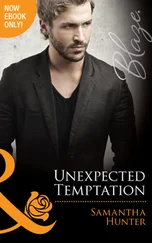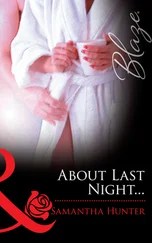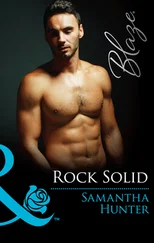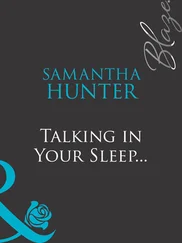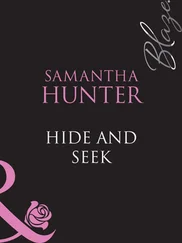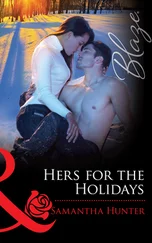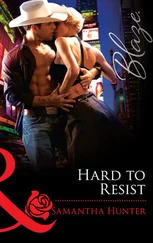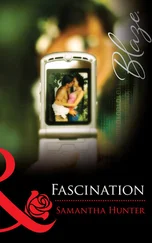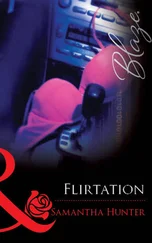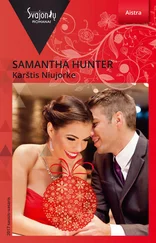What’s her problem? “What’s your problem, Ruth? If you don’t tell me, I’m going to think something awful. I’m going think you got gang-raped or something.”
Ruth keeps walking.
Another day goes by. I’m losing count. Does that make five days? I never imagined we’d walk this far, but Ruth is a strong magnet, a used-car-lot magnet pulling me behind her as she goes. “Please talk.” She looks like a concerned relative at a hospital bedside, pained by my pain but not pained enough to make the pain stop. She says nothing.
I pick berries growing at the side of the road. They look like blackberries, but I don’t really know about stuff like that. I eat them anyway. They might not be blackberries at all. Maybe they are poisonous. Ruth watches me chew. She doesn’t say anything. The berries don’t kill me. We keep walking.
I hear swoosh and whoosh. Words like “burlap” get stuck in my head on the road. Burlap. Burlap. Burlap, the sound of our footsteps. Songs stick in my head too. “White Christmas.” “Sentimental Lady.” “Star-Spangled Banner.” I hear TV shows and greasy burps, things that were once inside me coming back through on their way out. After only a week on the road, I am changed. It’s hard for me to stay too long at a diner or coffee shop. I hear so much now. The air conditioners, dishwashers, coffee machines, and restroom hand dryers rage like an angry electric army. We eat quickly. I steal foil packets of butter to rub on my aching feet.
I should go home and I would, except that I keep thinking we are bound to get there soon. We have to.
People stare at us while we walk, human females traveling alone. We must want to die or else we must be criminals, because we are two full-grown women walking together, single file, not talking, on busy roads, on back roads. No one would mistake us for exercising housewives. Certainly not any of the men who leer and jeer and ask creepy questions like, “Where you heading tonight?” Ruth’s scar could creep out the creepiest creeps, so she leads, bearing her mark ahead of us as a shield of protection.
We walk through places no one ever walks. Places with piles of trash at the side of the road. I read a few words from yellowed newspapers. There are plastic water bottles full of pee. Road salts and Styrofoam to-go containers whose insides are coated with the remnants of sloppy joe.
U-Pick signs dot the landscape. Modular homes are for sale. Billboards advertise cluster fly spraying services and “The Power of Cheese.” Outside an Oneida casino, a handmade signs says NO SOVEREIGN NATION. NO RESERVATION and then KARAOKE WITH ROGER AND ARLENE. Silos, flags, tractor sales, and cabins. Aging Christmas decorations, yard sales, summer camps, rifle ranges, meth heads in trucks, and gray people behind screen doors who look out as we pass. A large bird, Lord would know what kind, perches on one foot in an irrigation ditch. Cloud shadows on fields and a father, smoking a cigarette, hauling his kids down the road’s shoulder in a trailer hitched to his lawn mower. Thunder and lightning. Up and down. Up and down. Sometimes I think about sex.
We never travel far in one day. We might spend two hours walking. We might go as long as four. “Where are we going?” I ask. Then, “Are we even here?”
My feet ache, my whole body. In one small town, there are no motels, so we find an abandoned car behind a service station. We lock the doors. When I wake in the night to pee, one streetlight casts long shadows. Stones look like fierce animals; trees look like dangerous men in leather jackets. I get back in the car and lock the doors.
When I wake, Ruth is looking at me because my shirt’s ridden up in the night. She sees my belly. The bump is becoming obvious. I hadn’t told her. I scratch blood to my scalp. “I’m going to have a baby.”
Her face is hard. She lifts my shirt again, resting her dry hand on my stomach, lump of dough. Ruth palpates a few spots until she finds one she likes. She keeps it there. The conspiracy of cells dividing underneath my skin makes Ruth smile. I like it when Ruth smiles. It’s almost like speaking.
I buy a cup of coffee at a gas station. A nurse in turquoise scrubs coming off a night shift tells the cashier, “I’m heading home to eat hot wings with blue cheese.” For the first time since we started, I don’t miss the comforts of home.
A large group of walking women dressed in bright pink pass us by. Some are in crazy costumes, pink wigs and tutus. Some carry stuffed flamingos. Some carry pictures of dead women. I stop one. “What’s going on?”
She’s pretty, healthy. Her cheeks are cherried with exertion. “We’re on a walk,” she says.
I nod.
“For breast cancer. A five-K.”
She catches up with her buddies, switching her tush as she passes.
“Five-K?” I say to Ruth. “Amateurs.”
Ruth smiles again.
“Man, we should have found a sponsor. We’d be raking it in.”
Men honk. Teenagers play chicken with our bodies and their cars. A nasty dog charges. I pick up a stone aiming for its flank, but— crack —it lands in a soft spot on his forehead. The dog stops. I raise my arms overhead. It’s a small victory for the pedestrian. I don’t even feel bad. It’s really hard to be a walker these days, a pregnant walker. Drivers scream from their windows like we’re the selfish ones, decadently traveling on foot. Time moving luxuriously slow for us alone.
Well, take that right between the eyes.
The first time I feel the baby move, I think it’s my phone on vibrate until I remember I don’t have a phone anymore.
Someone’s left a plush gray sofa and a busted recliner on the shoulder of a side road, curb furniture. We sit in them for a rest. They smell like pond scum and air freshener. Birds make a fuss in the tree behind us.
We come to a lake with a beach. There’s a small wooden walkway and an empty lifeguard’s chair. The day’s warm. There’s a dock and a line of red floats in the water marking a safe boundary. It’s late afternoon. Children are splashing. Families are gathered on the beach. The fathers wear white shirts and black pants. The mothers wear thick hose and long dresses. Their heads are covered with scarves. Orthodox Jews. A group of teenagers wears matching sweatshirts and black jersey skirts so long, they swipe the ground.
I remove my shoes to feel the sand. “Hello.” But we’re intruders here. Ruth and I find a spot on the beach and shrug off our bags. When I sit, bent in the middle, my already-unbuttoned jeans cut into my belly. The beach gets quiet but eventually the boys return to splashing, ignoring us. Some wear prayer shawls. All of them, even those deep enough to breaststroke, cover their heads with yarmulkes. There are no girls swimming.
The children shriek. The mothers scold. The teenage campers are watchful.
Ruth loses her pants first, then her tops. People are not going to like this. She stands in her modest bra and underwear — a plain white brassiere and pale blue briefs that rise to her navel — loud as a siren, but the boys keep swimming. Her body is ghastly white and trim. She has the physique of an elementary school gym coach, not cut, but strong, flat, fit, just fine. Everyone ignores her. Maybe they think she’s a boy.
She walks to the water’s edge. “Ruth?” But she keeps going, looking to the low green foothills on the other side. The cold water doesn’t stop her. She walks straight in, out past the boys to where she can begin to swim. Her arms paddle through the brown, cool lake.
I stand to wiggle out of my jeans, disrobing down to my T-shirt and undies. Immediately people take notice. The other beachgoers freeze, stunned. One father realizes what’s about to occur. Pregnant female flesh is set to corrupt the oasis where his son has come to bathe. The father sets off an alarm, panic flushes his forehead. He stands, arms waving. Sweat pastes his silver hair to his doughy skin. “Boys! Boys!” he yells. “Everyone out of the water!”
Читать дальше
